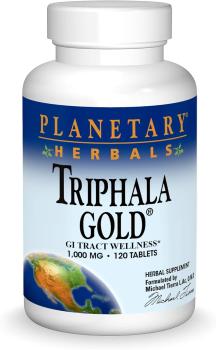Do you have questions about probiotics? We got in touch with James B. LaValle, RPh, CCN, for answers!
Frequently Asked Questions on Probiotics
-
Types of Probiotics and Your Needs
-
How do you know if you need to take probiotics?
-
For Digestive and Immune Issues
Other than people with SIBO (small intestine bacterial overgrowth), anyone with digestive issues such as gas, bloating, indigestion, constipation, or loose stools or immune issues such as allergies or being prone to colds will benefit from probiotics.
-
After Taking Antibiotics
Anyone who has taken antibiotics for an illness or surgery or acne in the past should take a probiotic to restore beneficial flora to adequate levels.
-
When Taking Certain Medicines
People on acid-blocking medications or nonsteroidal anti-inflammatory drugs (NSAIDS) should also consider probiotics.
-
-
Which strains work well for specific symptoms/conditions?
The science of probiotics for condition-specific uses is still evolving. For example, L. rhamnosus has a couple of studies showing it might help weight loss, especially in women.
I recommend “the friendly trio,” which are three of the most stable, well-documented, clinically studied species:
- Lactobacillus gasseri KS-13
- Bifidobacterium longum MM-2
- Bifidobacterium G9-1
These have been reported to:
- improve digestion
- reduce cold and allergy symptoms
- restore a healthy microbiome in aging adults
-
-
Proper Dosages for Probiotics
-
What are the recommended levels of colony forming units (CFUs)?
You want counts in the billions.
- Some conditions like antibiotic-induced diarrhea will resolve more quickly with higher CFUs.
- For issues like colitis or autoimmune disorders, healthcare providers may recommend higher CFUs initially but then back down to lower doses as maintenance.
It is not just about CFU count. Verifying that a brand tests to guarantee that the bacteria remain viable through the shelf life and CFU counts are accurate to the date of expiration is an important part of picking a probiotic.
-
If you eat fermented food, do you need to take probiotics?
Depending on the products, you often do still need to take a probiotic supplement, mostly because the bacteria starters used to make those food products can be limited in bacteria types.
Kefir tests out pretty well for the amount of beneficial bacteria it contains, but you have to tolerate milk.
-
How do you know if you should take probiotics daily or weekly?
Take probiotics daily until symptoms improve. After that, cut down to a couple of times a week.
If you are on medications that disrupt the microbiome, try taking a probiotic at least five days per week.
-
-
For Those with Medical and Health Concerns
-
If you’re taking antibiotics, when and how do you take probiotics to restore healthy flora?
Take a probiotic at least two hours away from antibiotic dosing, typically twice a day.
-
Can people of any age take probiotics?
Probiotics are safe and effective for every stage of life.
I often recommend probiotics for children due to their role in supporting the immune system, in addition to helping to address skin issues, and easing digestive woes associated with antibiotic usage.
-





